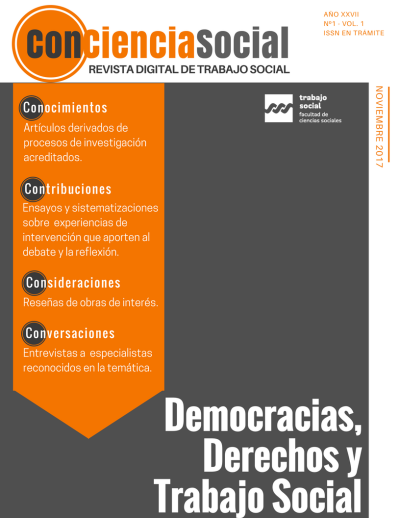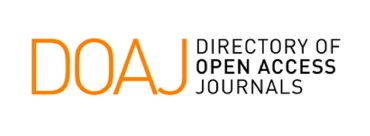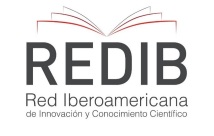The Tension Social Security - Assistance in Universal Child Allowance for Social Protection
Keywords:
Universal Child Allowance, social security, assistanceAbstract
This article presents results of the doctoral thesis "The conditionalities of social policies from a relational perspective of analysis: meanings and tensions of the Universal Assignment by Son in the Province of San Juan", PhD in Social Sciences, Faculty of Social Sciences, University of Buenos Aires, 2015. The Universal Child Allowance for Social Protection (hereinafter AUH) combines components of the social security field and the field of assistance[1] into the same definition, entering a gray area between both systems. That gray area is given because the AUH moves away from the usual forms of assistance policies of the last decades by the extension of its coverage and because it represents the extension of a right that until the moment only had the children of the formal workers, to the children of informal and unoccupied workers. Also because although it is possible to recognize care components in its design, at the same time it can be placed outside the typical characteristics of the assistance and promotion actions. The definition of AUH from assistance also appears in the actors involved in its implementation: both agents of the State and the beneficiaries define it as an "aid" for families that do not have work or whose income is insufficient to meet their basic needs, though the meanings and arguments around these terms have different traits, according to one or another group. In the article we will analyze the assistance components of the normative and official discourse of the AUH and the meanings or constructions of meaning realized around the AUH as assistance in the actors involved in its implementation.
[1] The assistance organized based on the principle of necessity, linked to the characteristics of the person and their situation; while social security anchored in the recognition of the rights of workers (in general, formal workers).
Downloads
References
Arcidiácono, Pilar; Carmona Barrenechea, Verónica y Straschnoy, Mora (2011): La asignación universal por hijo para protección social: rupturas y continuidades, ¿hacia un esquema universal?. Revista Margen de Trabajo Social y Ciencias Sociales Nº 61 – junio, Bs. As. ISSN 0327-7585
Arias, Ana Josefina (2012): Pobreza y Modelos de Intervención. Aportes para la superación del modelo de asistencia y promoción, Ed. Espacio, Bs. As.
Costa, Ignacia (2010): Asignación Universal por Hijo para la Protección Social: entre la seguridad social y la asistencia. En 1º Congreso Internacional Extraordinario de Ciencia Políticas, San Juan, Argentina.
Hintze, Susana y Costa, María Ignacia (2012): La reforma de las asignaciones familiares 2009: aproximación al proceso político de la transformación de la protección. En Danani, Claudia y Hintze, Susana (coordinadoras): Protecciones y desprotecciones. La seguridad social en Argentina: 1990-2010, Universidad Nacional General Sarmiento.
Lo Vuolo, Rubén M. (2010): Las perspectivas de Ingreso Ciudadano en América Latina. Un análisis en base al “Programa Bolsa Família” de Brasil y a la “Asignación Universal por Hijo para Protección Social” de Argentina, Documento de Trabajo Nº 75, CIEPP (Centro Interdisciplinario para el estudio de políticas públicas), Buenos Aires.
Lozano, Claudio y Raffo, Tomás (2010): Bicentenario sin hambre. Evaluación del programa “Asignación universal por Hijo para la Protección Social” en sus primeros 4 meses de implementación, IDEP-CTA, Buenos Aires.
Merklen, Denis (2013): Las dinámicas contemporáneas de la individuación. En Castel, R.; Kessler, G.; Murard, N.; Merklen, D. Individuación, precariedad, inseguridad. ¿Desinstitucionalización del presente?. Buenos Aires: Editorial Paidos.
Paugam, Serge (2007): Las formas elementales de la pobreza. Alianza Editorial. Madrid.
Pautassi, Laura; Arcidiácono, Pilar y Straschnoy, Mora (2013): Asignación Universal por Hijo para Protección Social de la Argentina. Entre la satisfacción de necesidades y el reconocimiento de derechos, CEPAL, División de Desarrollo Social. Iniciativa CEPAL – UNICEF
Roca, Emilia (2010): Conferencia “De la Sociedad de Beneficencia a la Asignación Universal”, en el Ciclo de debates 2010: El Conurbano Bonaerense frente al Bicentenario: Balances y Perspectivas, organizado por el Instituto del Conurbano de la Universidad Nacional de General Sarmiento, 2 de septiembre de 2010.
Simmel, Georg (1986): El Pobre. En: Sociología, estudios sobre las formas de socialización. Ed. Alianza, Madrid.
Simmel, Georg (2002): Sobre la Individualidad y las formas sociales. Escritos Escogidos, Universidad Nacional de Quilmes, Bs. As.
Documentos consultados:
Decreto presidencial 1602/09: Creación de la Asignación Universal para Protección Social.
Decreto 446/2011: Asignación Universal por Embarazo.
Sitios web consultados:
Administración Nacional de la Seguridad Social (ANSES)
http://www.anses.gob.ar/asignacion-universal-68
Ministerio de Desarrollo Social de la Nación (MDS), Argentina
Downloads
Published
Issue
Section
License
Aquellos autores/as que tengan publicaciones con esta revista, aceptan los términos siguientes:Los autores/as conservarán sus derechos de autor y garantizarán a la revista el derecho de primera publicación de su obra, el cuál estará simultáneamente sujeto a la Licencia de reconocimiento de Creative Commons que permite a terceros:
Compartir — copiar y redistribuir el material en cualquier medio o formato
Adaptar — remezclar, transformar y construir a partir del material para cualquier propósito, incluso comercialmente.
La licenciante no puede revocar estas libertades en tanto usted siga los términos de la licencia.Los autores/as podrán adoptar otros acuerdos de licencia no exclusiva de distribución de la versión de la obra publicada (p. ej.: depositarla en un archivo telemático institucional o publicarla en un volumen monográfico) siempre que se indique la publicación inicial en esta revista.
- Se permite y recomienda a los autores/as difundir su obra a través de Internet (p. ej.: en archivos telemáticos institucionales o en su página web) después del proceso de publicación, lo cual puede producir intercambios interesantes y aumentar las citas de la obra publicada. (Véase El efecto del acceso abierto).
Los derechos de explotación comercial (Copyrigth) quedan reservados para los autores.















